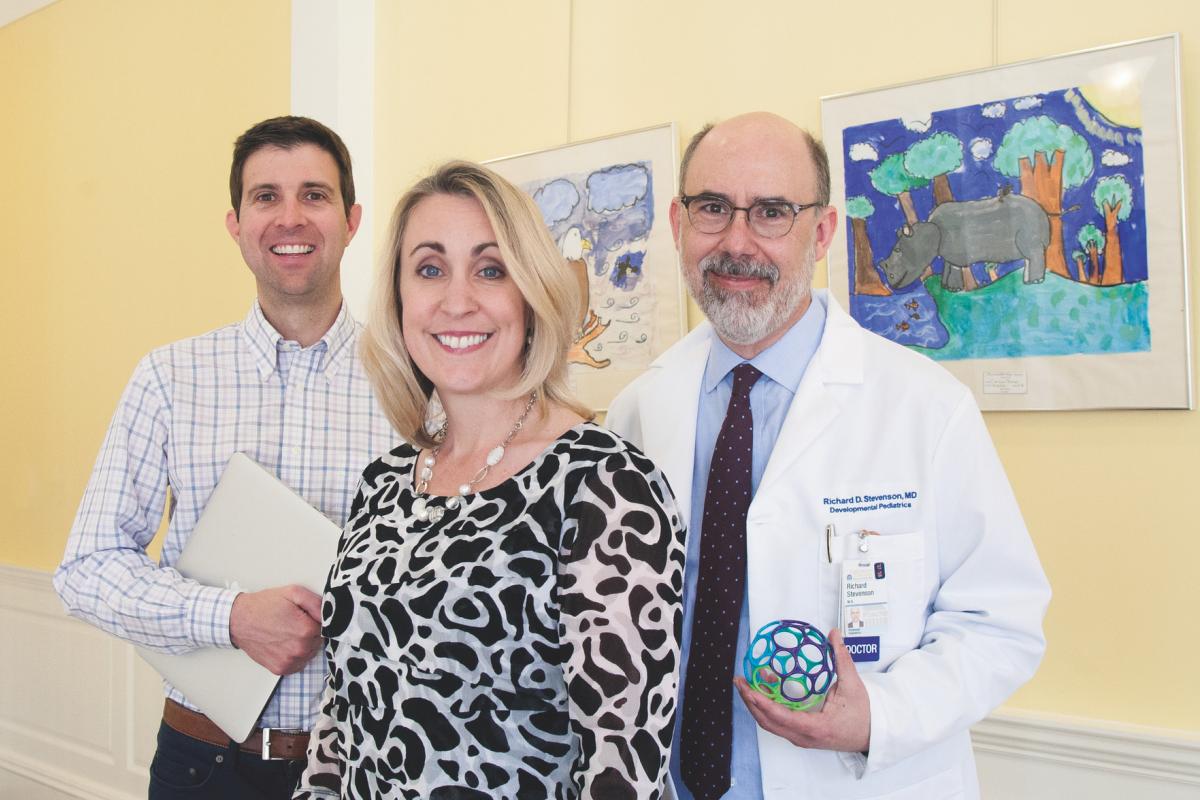Rethinking Autism—From All Angles
An astounding 126,000 Virginians are affected by autism spectrum disorder, a complex developmental condition often marked by repetitive behaviors and challenges in social interactions and communication. Approximately one in 68 Americans fall somewhere along the autism spectrum. But what if we could decipher the fundamental causes of autism and find new ways to predict and treat the disorder? That’s the ultimate goal at UVA, where leading researchers at UVA Brain Institute are probing the neurological origins of autism. And, while these researchers search for biological answers, other teams across the University are coming together to offer better, more coordinated care for patients and their families.
A new cross-disciplinary Center for Autism will bring together clinicians, educators, and researchers from UVA Brain Institute, UVA Children’s Hospital, the Curry School of Education, and other partners across UVA to tackle the issues of autism. The community-based Virginia Institute of Autism will also partner in the effort.
“The challenges of autism are so enormous and so complex that no single entity or individual can tackle it alone,” says Jaideep Kapur, MD, director of UVA Brain Institute. “We need to approach it from multiple ways—from finding the brain mechanisms involved and understanding why certain children are more susceptible to autism, to figuring out the best interventions to help these children achieve their potential.”
Targeting some of those interventions is a priority for UVA Children’s Hospital, home to skilled developmental pediatricians and experts in neurodevelopmental disabilities and autism. Each year, these physicians care for approximately 2,000 children with mild to severe autism. Early diagnosis and intervention aids immensely in developing communication and social skills and improving overall quality of life. A nationwide shortage of clinical professionals in autism, however, is currently forcing some children to be put on waitlists for assessment and treatment, potentially affecting their chances of better outcomes.
“We’re in the midst of what some consider an epidemic of autism,” says Richard Stevenson, MD, head of the Division of Developmental Pediatrics at UVA Children’s Hospital. “There are a lot of unknowns in how to best diagnose autism across all levels of severity, and the best way to care for each individual. This is a great opportunity to improve clinical care and to increase our knowledge about the disorder through research.”
UVA Children’s Hospital plans to tackle the shortage problem by expanding its fellowship program in developmental pediatrics to train more doctors to care for children with autism. Many of these children also live with other disabilities—such as cerebral palsy, Down syndrome, and attention deficit hyperactivity disorder (ADHD)—and require multiple specialists. This creates a complex maze of care for families, with few resources to guide them. The Center for Autism will also create a family resource navigator team to improve access to services and coordinate appointments at UVA and within the community.
“Training a corps of future doctors, teachers, and other experts is critical to this initiative,” emphasizes Kapur. “By working together, we stand to make the greatest possible impact.”

